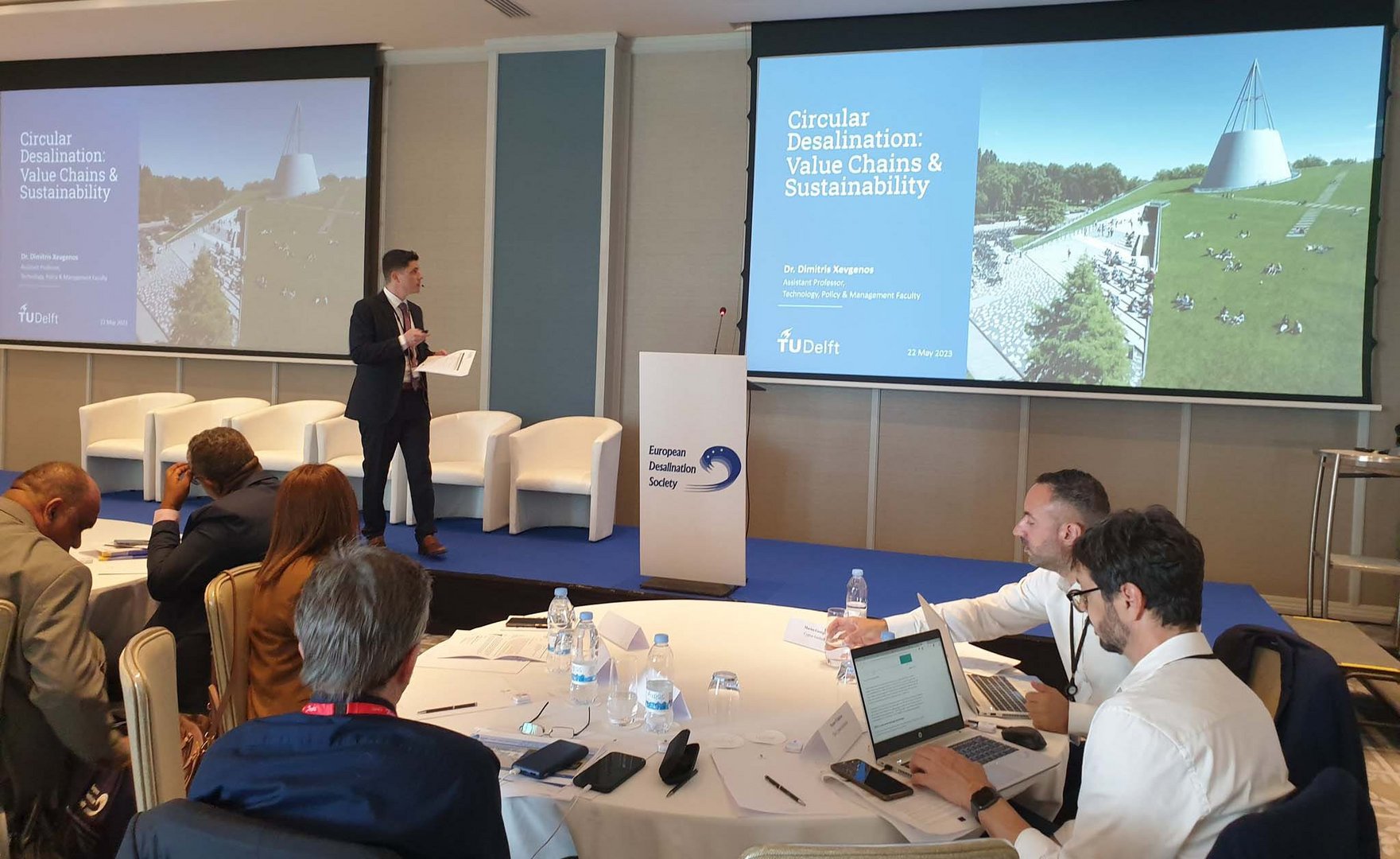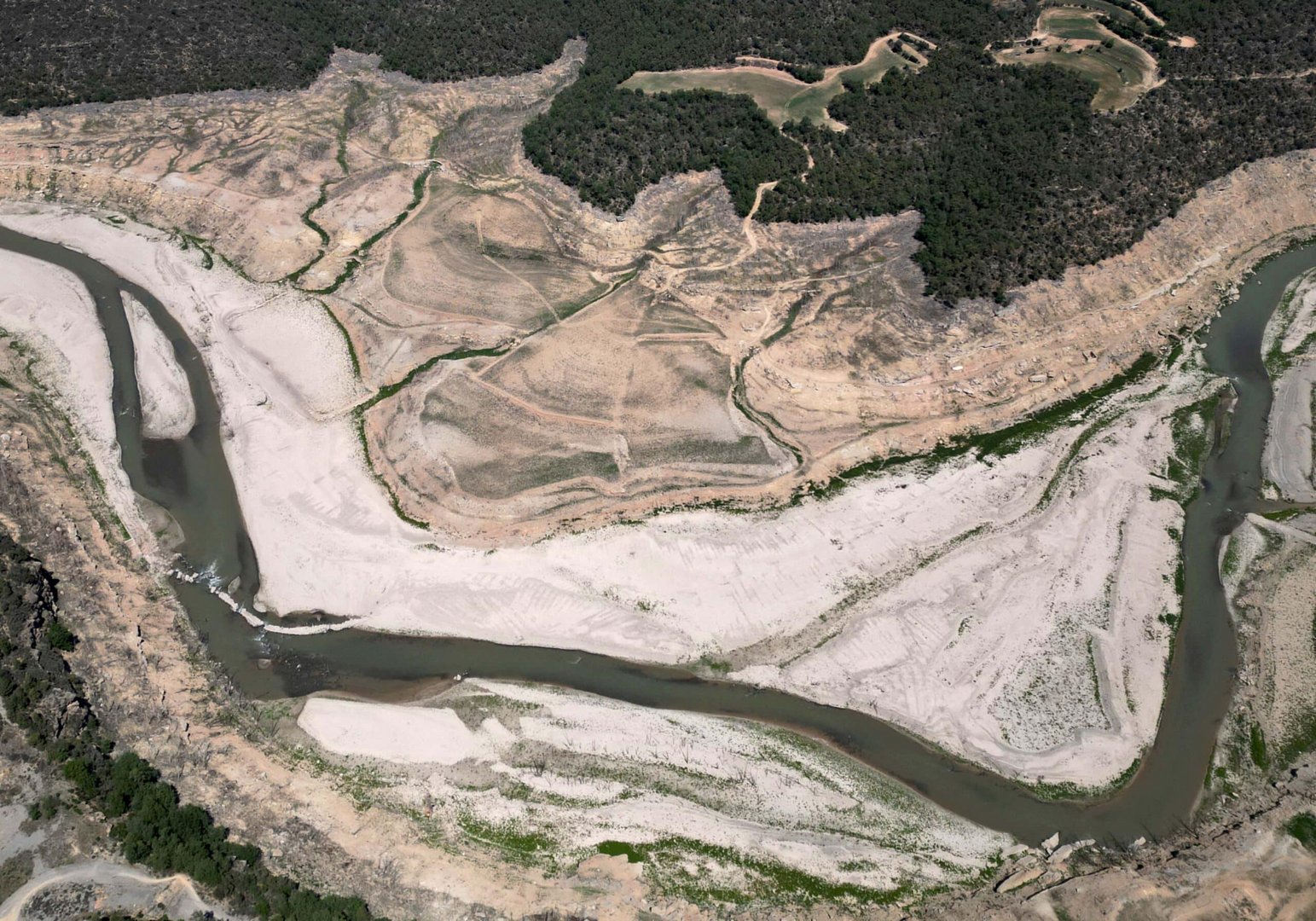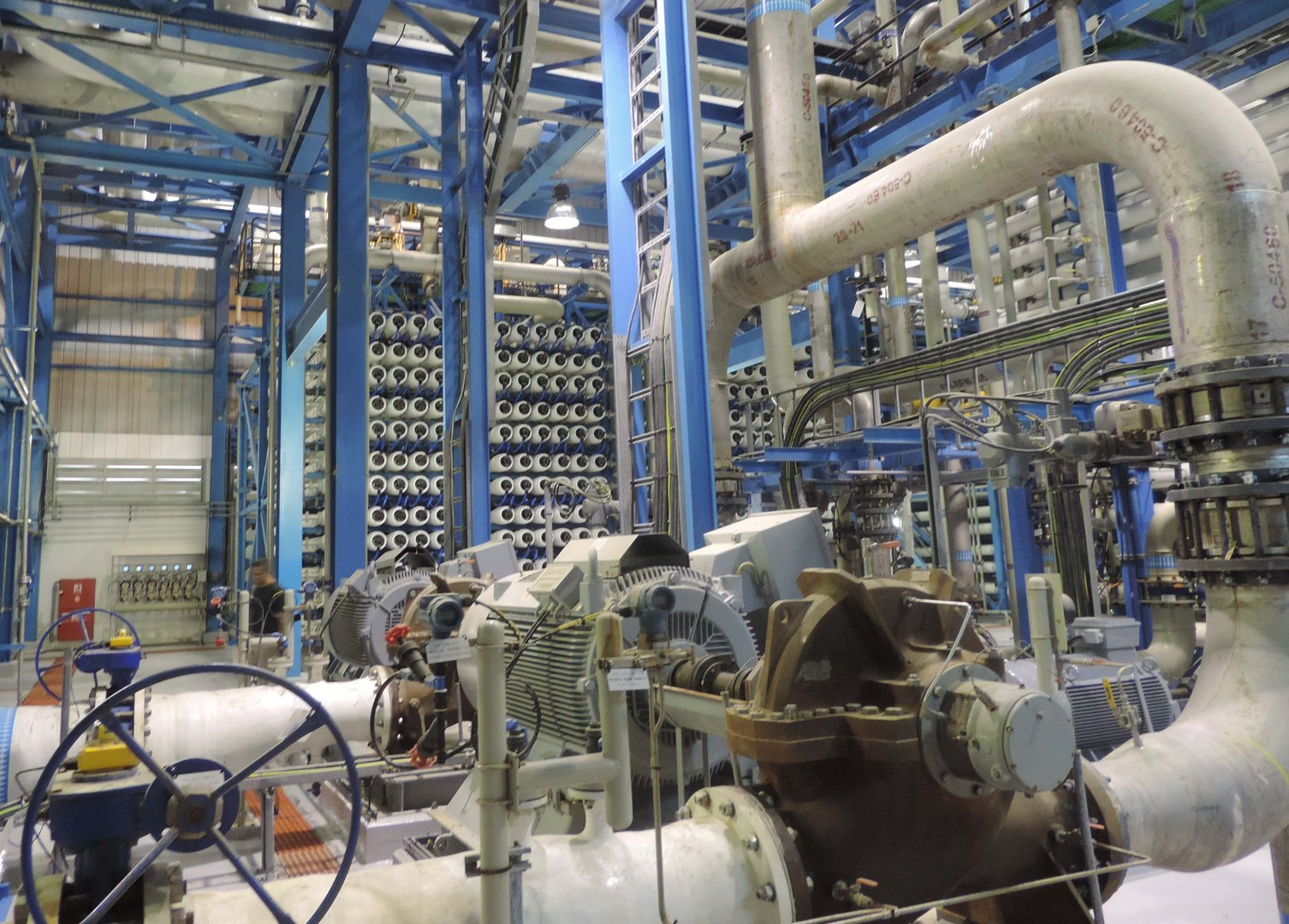The island is increasingly dependent on desalination, and the environmental cost is heavy, though that might be about to change
By Annette Chrysostomou
The energy consumption of desalination is expected to increase eight-fold globally by 2040, due to increased demand for freshwater, the International Energy Agency estimates.
Most people living in Cyprus are aware this is the most water-stressed country in Europe, but last year’s drought in many European countries means the subject of water scarcity has become even more urgent.
But existing desalination plants are not a long-term solution, experts predict.
“Water resources in Cyprus are very expensive to exploit,” said Panayiota Hadjigeorgiou, head of the water development department in Cyprus.
Plus, they cause environmental problems, as the World Economic Forum warns.
“Desalination plants produce waste and toxic chemicals that are harmful to wildlife and the planet. The process can also raise salt levels in seawater, which affects fish. Desalination plants that use diesel also produce greenhouse emissions,” it said.
“This hypersaline water can sink to the ocean bed and kill marine microorganisms that are vital to the entire food chain,” said a 2021 study published in the Science and the Total Environment, a prestigious international multi-disciplinary natural science journal.
“In addition, chemical compounds such as copper and chloride are also observable in the desalination pre-treatment process and can be toxic to organisms in the receiving water.”
This week, a conference took place in Limassol which shed more light on possible solutions. The event is part of the Horizon 2020 Water Mining project which started on September 1, 2020, lasting for four years until August 31, 2024. Since its start in 2020 the project has come a long way, and is now investigating case studies. Cyprus is one of six areas which deserves closer scrutiny, the project leaders decided.

From the workshop on desalination in Limassol earlier this week
Water Mining, the conference organisers, based in the Netherlands’ Delft University of Technology, has the aim to ensure water is available for all by 2030.
“More than half of the EU territory has now been affected by droughts over the last summer. So those solutions that we are now investigating in Cyprus could well be replicated in other parts of Europe,” said Dimitris Xevgonos, executive coordinator of the project.
“By 2050, half of the EU territory will suffer from severe droughts. The acquisition of water from the sea presents itself as a compelling alternative source.
“We are targeting sea water, 97 per cent of the total earth water. In theory, it can deliver unlimited amounts of fresh water.”
He said that for drinking water desalinated sea water is normally used while for agricultural purposes treated urban wastewater is used.
“But in general desalination creates brine which is discharged into the sea and leads to damage to the ecosystem. In Cyprus we show that we can use that brine to generate nutrients for agriculture and to generate acetone-base which can be used in the chemical industry as a raw resource,” Mark von Loosdrecht, Water Mining’s technical coordinator, explained.
“The environmental damage of desalination is now occurring everywhere in the world, and with our technology we can regain resources and at the same time, get a better social, coastal and marine life.”
Patricia Osseweijer, professor of biotechnology and society at the University of Technology in Delft and another programme coordinator, is especially interested in the social aspect.
As she points out: “Without water we cannot have a good societal life in Cyprus because we cannot grow our own food, we cannot support our children in development. Without technology – including desalination – we cannot have enough water to survive at Cyprus, especially giving climate change effects.”
“Desalination exists, but we can make it more sustainable, so it uses less energy and prevents any pollution and, if we can, also improve the urban wastewater treatment so we can recover useful nutrients and make it better and cheaper. These are the aims we wish to achieve with our partners in Water Mining.”
She is sure the project will have an impact beyond practicalities.
“Water Mining will bring security. But not only that, it will bring hope to the future generation of people living in Cyprus. The project will help to ensure a future sustainable and affordable water supply – so the children from Cyprus can continue to grow their own food and produce and reuse their own water in a safe way.”

Droughts have become more commonplace throughout Europe
Water scarcity around the Mediterranean
- The population of the Mediterranean basin is 427 million; this accounts for 7 per cent of the world’s total population. Water stress is a high concern, where a large portion of the world’s waterpoor population lives in the region
- The Mediterranean is one of the most water-scarce regions in the world, with an average annual precipitation of only 650mm, compared to a global average of 860mm
- Water resources are unevenly distributed in the Mediterranean region with 72 per cent of resources in the north, 23 per cent in the east, and only five per cent in the south
- In the last 50 years, the total water demand has doubled as a result of demographic pressure and the development of water-intensive activities, such as tourism and manufacturing
- Over 180 million people in the Mediterranean region are affected by water scarcity, and this number is expected to increase due to population growth, urbanisation, and climate change
- The demand for water in the Mediterranean is expected to increase by 50 per cent by 2050, while the available water resources are expected to decrease by 10-30 per cent
Desalination facts and figures
- EU desalination facilities can supply up to 2.89 billion m3 of desalinated water a year
- 71 per cent of the water produced is used for public water supply
- 17 per cent of the desalinated water produced in the EU is used for industrial use, 4 per cent in power plants, and 8 per cent for irrigation
- EU desalination plants are mainly located in Mediterranean countries, where they will be mostly needed in the future: about 1,200 plants provide a capacity of 2.37 billion m3 (82 per cent of total EU desalination capacity)







Click here to change your cookie preferences